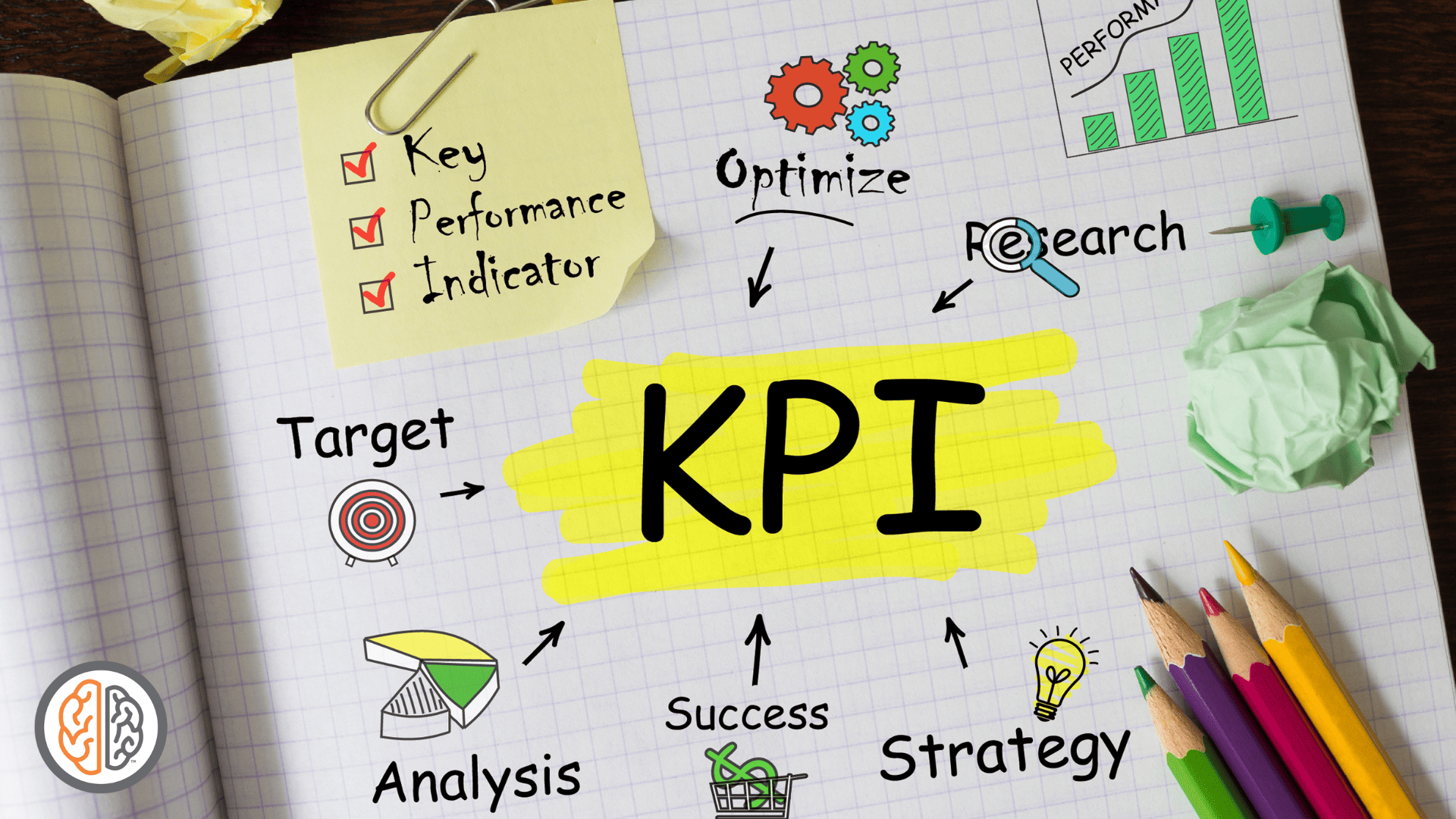KPIs (Key Performance Indicators) are the barometers of how your business is doing.
They measure different aspects of your business, comparing the goals of the business to the actual results. Depending on the type of business you have, and the forms of marketing you use, the KPIs will be different. It all depends on the criteria you use to gauge success.
For instance, if a business goal is to have 75% of people who view your website purchase at least one item, this digital marketing KPI will track what percentage of website traffic actually purchases something.
In theory, you can have as many KPIs as you want, but the more KPIs you use, the more data there is to be analyzed. If you have more data than you can make sense of, you’re using too many KPIs. Narrow the number of KPIs down to a handful that focus on the most important indicators for your business. Some popular KPIs are:
- Client retention
- Website conversion rate
- Engagement rates
- Customer satisfaction
KPIs vs. Metrics: what’s the difference?
Broadly speaking, metrics refers to anything that measures something in a business, while KPIs monitor the critical areas of business performance. You might have a metric that tracks how many reactions a social media marketing is receiving, but it may not be considered critical to a business’s goals. Whereas a metric that measures what percentage of leads come from that social media platform might be considered a KPI (assuming the business has a set goal of social media leads).
How do I track KPIs?
If your business is already using tools to track business metrics, you might already be harvesting important data that can be used as KPIs. However, to streamline your process, you might need to invest in a software that tracks and analyzes that data for you.
There are a few things to keep in mind when choosing KPI software:
- A good KPI software should be able to handle both internal and external data and display them both in the same place. This saves time changing between different systems for different types of information.
- The software should be accessible and easy to use. If it’s overly complicated, the system might not be used to its fullest potential (or at all).
- The software should display data intelligently. From interactive graphs and charts, the information should be easy to understand.
- The information provided by the KPI software should be easy to share with other programs and people in the company.
Depending on which KPIs you use, you might learn new things about your business. Some of these things could be positive, while others might highlight areas that need work. At SOULO, we can help you determine which marketing KPIs are most important to measuring your business against its goals. We keep you up to date on any and all areas that we track so you know if your business is performing at its best.
Want to learn more about how marketing KPIs can help improve your business? Give us a call!
SOULO is a full-service marketing and communications agency that helps client partners get the most from their projects through signage, printing, and digital marketing. Ready to get started? Contact us today!






